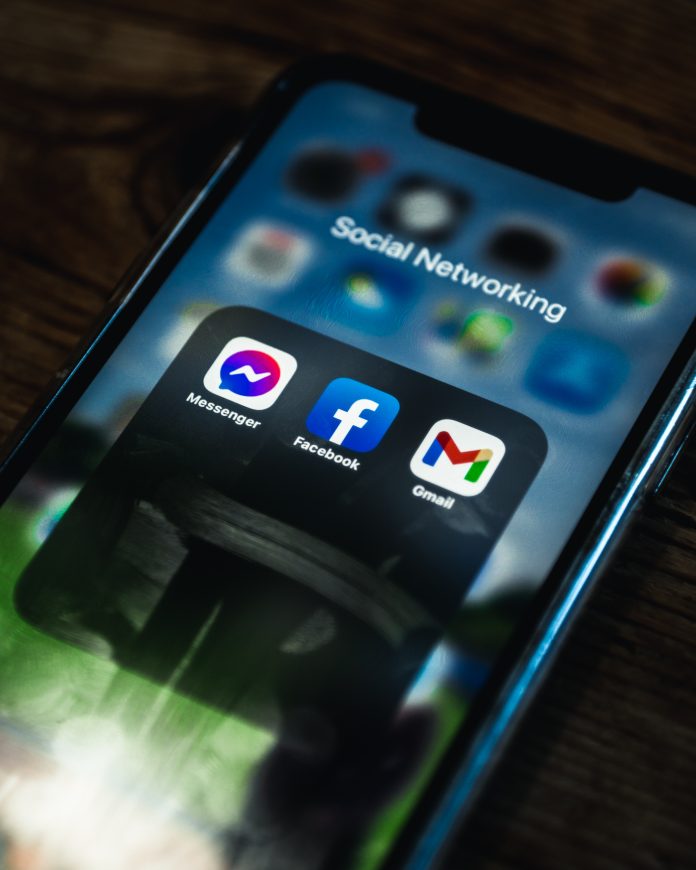Ariel Andres
Staff Writer
On Oct. 28, Facebook announced a new name for their parent company during their Facebook Connect conference: Meta. The name reflects Facebook’s overarching goal of becoming more than just a social media platform; rather, they want to bring the “metaverse” to life, where people can experience all aspects of their lives in a virtual world, including working, playing, and socializing.
They want to bring the ‘metaverse’ to life where people can experience all aspects of their lives in a virtual world, including working, playing, and socializing.
“The metaverse will feel like a hybrid of today’s online social experiences, sometimes expanded into three-dimensions or projected into the physical world. It will let you share immersive experiences with other people even when you can’t be together — and do things together you couldn’t do in the physical world,” Meta’s website says.
Facebook steadily built their virtual reality capabilities over the past decade. In 2014, they acquired Oculus VR, a company that creates virtual reality software and the hardware to accompany it. Since then, Facebook invested heavily into Research & Development (the part of the company that focuses on creating new technologies) related to virtual reality.
However, the announcement prompted immediate backlash, primarily because of Facebook’s dubious history with privacy and data concerns. Some say that Facebook is trying to rebrand in order to deflect recent controversies and scandals.
During the 2010s, Facebook was involved in a data harvesting scandal, in which UK-based elections consulting firm Cambridge Analytica mined thorough and extensive data from approximately 50 million Facebook users. Channel 4 News exposed a conversation in which employees for Cambridge Analytica admitted to swaying the 2016 election in former president Donald Trump’s favor using the data they collected.
In 2018, Facebook was sued for “losing control” of the data of over a million users in England and Wales, resulting in the users trying to claim compensation.
In 2019, it came to light that Facebook harvested 1.5 million user email contacts without permission. Upon signing up for the first time, users were asked to add their emails. Facebook would then use those email accounts and harvest data from them in order to suggest other people to connect to their platform.
Recently, whistleblower Frances Haugen, former product manager at Facebook, went public on “60 Minutes” about how she filed a complaint with the United States Securities and Exchange Commission, claiming that Facebook has not been transparent with Congress and investors about their practices. Haugen highlighted several key issues, one of which being that Facebook’s effort to use behavioral data to encourage more interactions between users ended up leading to divisive rhetoric and echo chambers. In fact, she said that such algorithms contributed to the Jan. 6 Capitol riot. She also alleged that Facebook knew about human trafficking and servitude that occurred on the platform, yet they still put in minimal effort to combat it.
In addition, Haugen recently testified to Congress about Facebook and Instagram’s negative effects on young teens. More specifically, these platforms tend to lead to insecurities, depression, and body image issues among young girls.
This is pertinent to UC Santa Barbara (UCSB) students and college students in general. Using social media can increase depressive symptoms and self-harm. The amount of college students having depressive symptoms is already as high as 44 percent, and up to 63 percent of students faced overwhelming anxiety in 2018. Those numbers haven’t been getting lower over time. One thing to consider is how the “metaverse” will contribute to depression and anxiety among college students.
Right now, social media is a two dimensional platform, but what will happen when it extends into the third dimension? What will happen when students become fully immersed in an environment that’s potentially as toxic as Facebook and Instagram can be?
Right now, social media is a two-dimensional platform, but what will happen when it extends into the third dimension? What will happen when students become fully immersed in an environment that’s potentially as toxic as Facebook and Instagram can be? As mentioned before, Meta plans to evolve to be more than just a social platform, but that will still remain a central aspect of it.
Meta has a public relations and trust crisis on their hands, and the road to regaining this trust will be a difficult one. The possible ramifications for the privacy and mental health of users is concerning. Nevertheless, Meta’s continual and rapid growth amid past controversies serves as an indicator that they will most likely get past this hurdle and continue being a wildly successful company.











